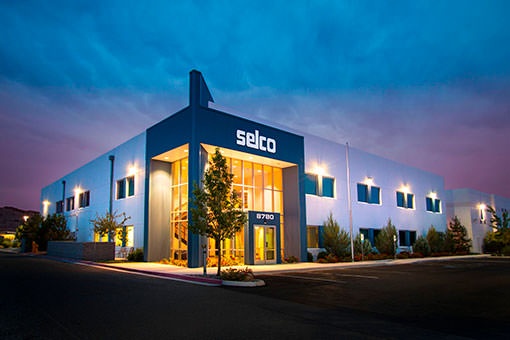ASK OUR EXPERT - What Sensor Do I Need?
How do you know which sensor is best for your particular application? It depends on your needs!
This post will go over three main types of non-mechanical sensors: they are the NTC thermistor, the thermocouple, and the RTD. We provide you some information to help you determine which one is best for your application.
Negative Temperature Coefficient (NTC) thermistor An NTC thermistor measures temperature based on the resistance changes of a ceramic or polymer resistor. This resistance is read by an electronic control and converted into a temperature reading.
An NTC thermistor measures temperature based on the resistance changes of a ceramic or polymer resistor. This resistance is read by an electronic control and converted into a temperature reading.
__ Thermocouple__ A thermocouple uses two wires made up of different materials to produce a voltage. This voltage changes relative to the temperature, so the electronic control can read the voltage and convert it to a temperature reading. There are type J and type K.
A thermocouple uses two wires made up of different materials to produce a voltage. This voltage changes relative to the temperature, so the electronic control can read the voltage and convert it to a temperature reading. There are type J and type K.
Resistance Temperature Detector (RTD) An RTD is like an NTC thermistor, but uses a metal resistance wire element. They can be manufactured using platinum RTDs.
An RTD is like an NTC thermistor, but uses a metal resistance wire element. They can be manufactured using platinum RTDs.
So which one do I need? It depends on what is most important in your application. Do you need something very high temp? The thermocouple can handle higher temperatures than the NTC thermistor and RTD. Is accuracy key? Try an NTC thermistor or an RTD as they tend to have better accuracy than thermocouples. Response time critical? An NTC thermistor or thermocouple could work well. Do you need long-term stability? RTD’s are the best (though likely also the most expensive) option.
Selection chart
| Sensor Type | Temp Range | Accuracy | Response Time* | Price (USD) |
|---|---|---|---|---|
| NTC Thermistor | -50-300°C | ±0.05-1.0°C over an accuracy range | 0.4-5 seconds | $-$$ |
| Thermocouple | -100-1750°C | ±1.1-2.2°C | 0.1-10 seconds | $-$$ |
| Platinum RTD | -200-1000°C | ±0.03-0.3°C at 0°C | 5-50 seconds | $$$ |
*Based on bare elements. Element packaging, housing and environment can affect response time.
Typical applications for each sensor typeThermocouples are most commonly used in industrial settings. Thermocouples are vibration resistant, relatively low cost, can measure high temperatures, and have fast response times. RTDs are also suitable for high temperatures, and have the added bonus of a high immunity to electrical noise. This makes the RTD a great option for industrial automation environments or anywhere else you would find generators, motors and other high voltage equipment. Lastly, NTC thermistors are best when consistent accuracy is needed over a specific temperature range (RTDs and thermocouples measure their accuracy at 0°C only). NTC thermistors also have the best sensitivity, and are typically 2-3 times less expensive than RTD’s.
Armed with this new knowledge, we hope you are better able to decide which sensor will work best for your specific application. Still not sure or have more questions? Feel free to contact Selco Products and check with a technical expert here.
Thermally Yours, Selco Thermal Experts


